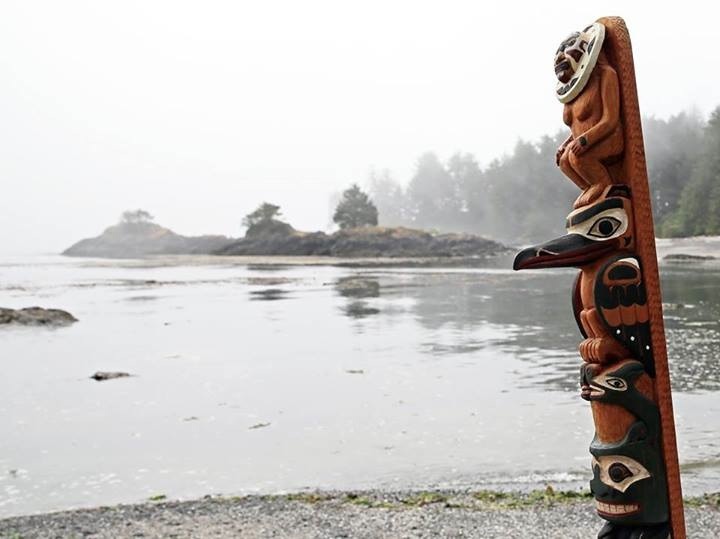
First Tribal Park in BC/Indigenous Relations, Meares Island, Turns 30 Years Old and is Expanded
The Meares Island Tribal Park was the first Tribal Park declared in British Columbia, and resulted in keeping the island’s majestic old-growth red-cedar forests still standing to this day. Since that time the Tribal Park model has not only been expanded by Tla-o-qui-aht in their own territory, but has also inspired First Nations’ protected areas across British Columbia and increasingly, around the world.
“The declaration of Meares Island as a Tribal Park 30 years ago set in motion an idea that has caught and spread throughout indigenous communities, that we can sustain our cultures by safeguarding the land and living things that provide for us,” stated Eli Enns, Tla-o-qui-aht co-founder of the Ha’uukmin (Kennedy Lake Watershed) Tribal Park in Clayoquot Sound. “We can assert our own management plans for our territories, as we have been doing for thousands of years, so that we can continue to live in harmony with the land that sustains us and all of humanity.”
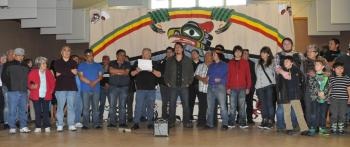
Tla-o-qui-aht, Tofino Celebrate Tribal park Declaration
The Tla-o-qui-aht First Nation band in southern Clayoquot Sound (Meares Island, Kennedy Lake, Long Beach, Clayoquot Valley, Tofino and Tranquil Creeks region...) have a long history of pioneering Tribal Parks and continue to do so today. Here's a good article about their recent celebration and some history of the battle for old-growth forests on Meares Island in the early 1980's that really sparked the campaigns to save Vancouver Island's old-growth forests over 30 years ago!
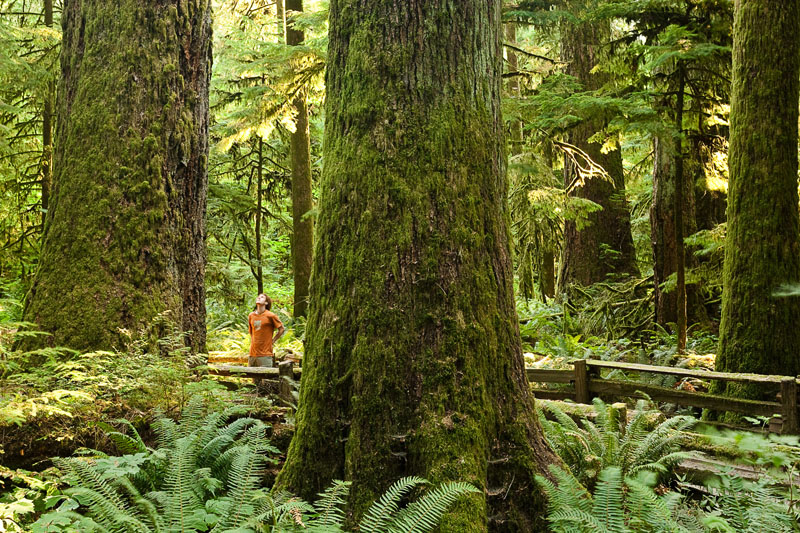
Earth Day Inspires Environmental Actions Around the World
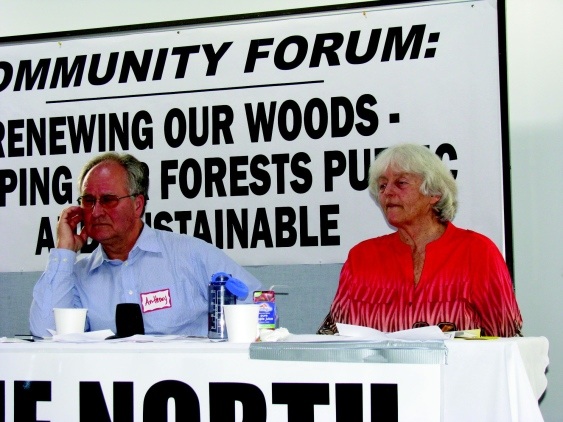
Forum urges residents to Stand Up for forests
Approximately 200 people came out to hear from First Nations, labour leaders, forestry policy analyst Anthony Britneff and noted environmentalist Vicky Husband. Britneff is a former senior forester with the B.C. Ministry of Forests and Range. He retired in 2010 after 40 years with the agency, and has been speaking out about what he calls "a perfect storm of mismanagement." On April 1, Forests, Lands and Natural Resource Operations Minister Steven Thomson announced a public consultation on a proposal to increase area-based tenures and tree farm licences. The consultation runs until May 30. "This process is not a public consultation at all. It's the government asking for feedback on what it plans to do," Britneff said.
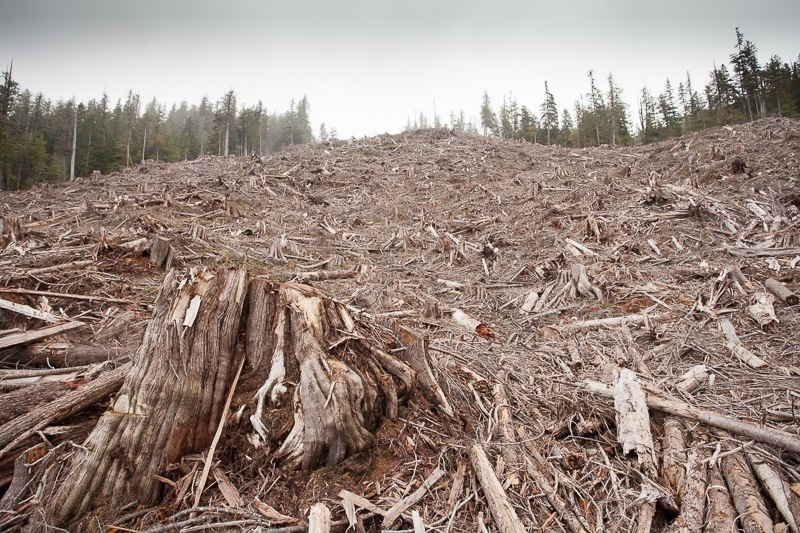
Playing with words regarding Tree Farm Licences
"When you drill down past all the headings and references to Area-based Forest Tenures on the Ministry’s website and in its Discussion Paper, it becomes clear that what the Ministry is proposing is a rollover of volume-based licences into one particular - and highly controversial - type of area-based tenure, i.e. Tree Farm Licences (TFLs).
So, rather than a Discussion Paper on Area-based Forest Tenures, the Discussion Paper could be more accurately described as a Discussion Paper promoting the benefits of Tree Farm Licences and defining the criteria for rollover to these TFLs. Why confound the terms and cause confusion? Why not make it crystal clear, with no ambiguity, that this whole exercise is about TFLs alone? Well, Tree Farm Licences have always been controversial in BC. Just last year, the Minister of Forests tried to push through legislation allowing for large-scale conversion of existing timber licenses into TFLs. Many in the province felt that this move would be a giveaway to the investors and shareholders of a few big companies at the expense of other sectors of the forest industry, First Nations and the population as a whole. In the face of widespread opposition, the Forest Minister was forced to withdraw the legislation."
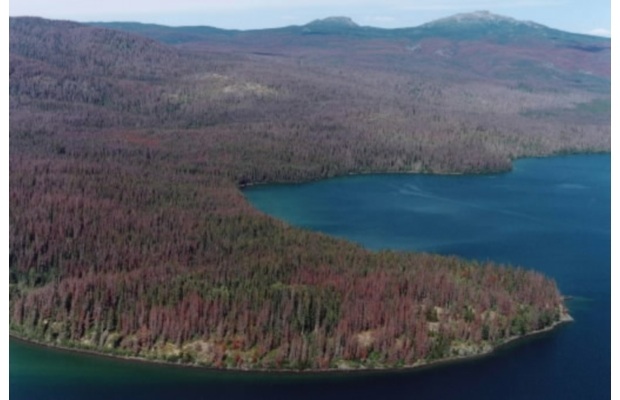
B.C. announces plans to revamp its timber supply system for forestry firms
Forests Minister Steve Thomson says the Liberal government is taking another shot at giving forest companies more rights to control British Columbia's public forest lands, but he rejects criticism that the plan would privatize provincial forests. The move could dramatically change the way public forests are managed by granting lumber companies tenure rights, or logging rights, to large pieces of land. Companies are currently allotted timber harvest rights on a specified numbers of trees. Plans to amend the Forest Act last year to move towards area-based tenures were dumped after a public outcry.
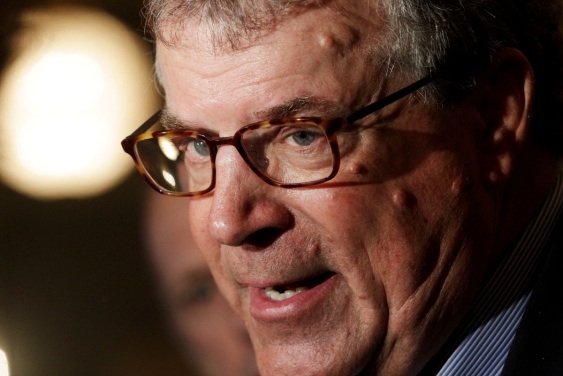
B.C. government reopens timber rights talks
Critics argue that giving forest companies increased control over Crown land spells disaster for the environment and makes it more difficult to settle First Nations treaties. “When companies say they want greater certainty over the land base, what they mean is greater certainty against conservation measures and treaty settlement,” said Ken Wu, executive director of the Ancient Forest Alliance. “There’s a lot of other users and a lot of other values on those lands besides large-scale logging.” NDP forests critic Norm Macdonald said there is no evidence that allowing exclusive rights in a timber area benefits anyone other than the big forest companies, many of whom are major donors to the B.C. Liberal Party.
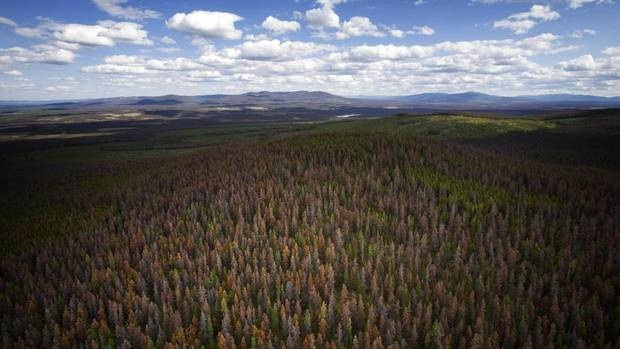
Timber companies can’t see the consequences for the trees
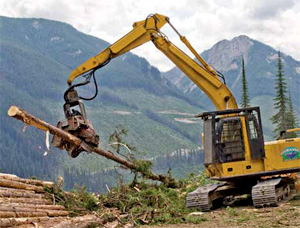
Overharvesting – Who is watching our forests?
"It is an outrageous amount. According to a document from the Ministry of Forests that was recently brought to light in the provincial legislature (1), for the five years between 2008 – 2013, the forest company giants, Canfor and West Fraser, overcut 928,000 cubic metres of non-pine wood in the Morice Timber Supply Area (TSA), a region in north-western British Columbia. This overharvesting was done in direct violation of the Allowable Annual Cut (AAC), and is equivalent to about 23,000 logging truck loads of timber."
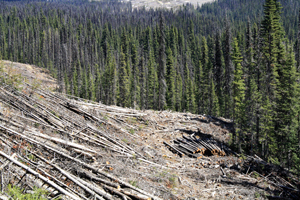
Comment: Forest, parks bills should be open to debate
On Feb. 25, two proposed bills, Bill 4 and Bill 5, entered their second reading and almost no one noticed. If passed, the two amendment bills — known as the Park Amendment Act and the Forests, Lands and Natural Resource Operations Statutes Amendment Act — would adversely affect forest-based jobs and our protected areas network, which are anchors for the motto “Super Natural B.C.”

